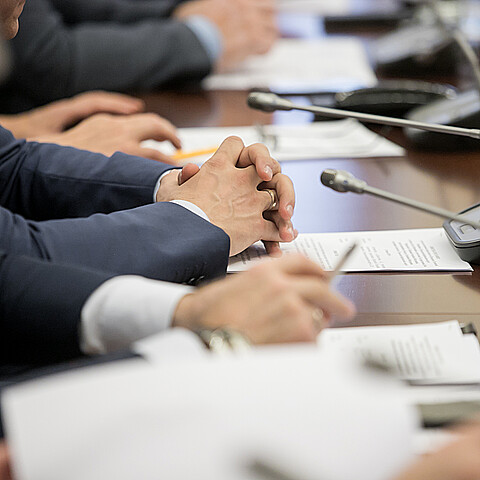Politics
Canadian lawmakers to vote on whether to continue emergency powers against Freedom Convoy
Trudeau says emergency powers are still needed after using unprecedented measures to quell nonviolent protest
February 22, 2022 12:36am
Updated: February 22, 2022 10:00am
Legislators in Canada's House of Commons are scheduled to vote Monday night on whether to allow Canadian authorities to continue to use emergency powers against the now largely-disbanded protests held by the so-called Freedom Convoy truckers in opposition to the nation's COVID-19 mandates.
Canadian Prime Minister Justin Trudeau said earlier Monday that his government still needed temporary emergency powers in the wake of the truckers' blockade.
"This state of emergency is not over," he said. "There continue to be real concerns about the coming days. Right now … people [are] out there indicating that they are ready to blockade, to continue their illegal occupations to disrupt Canadians' lives. We feel that this measure needs to remain in place."
For three weeks, truckers opposing the mandates blocked roads in downtown Ottawa, the nation's capital city. Other demonstrators had temporarily blocked U.S.-Canada border crossings. The protests had become a rallying point for people opposed to a range of Trudeau's pandemic policies, which they consider too austere, and inspired others around the world to try their own "freedom convoys."
In response to the Canadian protests, Trudeau announced Feb. 14 that he would invoke the Emergencies Act, giving him broad and unprecedented emergency powers to end the largely nonviolent protests.
Under the act, Trudeau's government has banned public assembly in certain locations, arrested numerous protesters, chased others away in riot gear and towed dozens of vehicles.
The Canadian government has also ordered banks to freeze the accounts of those involved in the convoy. Financial service providers have had to cease providing their services where the institution suspects that an account, either personal or corporate, is being used to further the blockade.
Last week, Canadian Justice Minister David Lametti described the government's seizure of bank accounts connected to the protest as simply "extending" the procedures used to stop "terrorist financing."
The crackdown worked: Downtown Ottawa was deserted Monday, and the blockades have ended. However, Trudeau said the threat remains.
"The situation is still fragile," he said. "Even though the blockades are lifted across border openings right now, even though things seem to be resolving very well in Ottawa, this state of emergency is not over."
Trudeau noted there are some truckers who are just outside Ottawa and may be planning further blockades.
"There continues to be real concerns about the coming days," he added.
Conservatives in Canada called Trudeau's use of the act an "unprecedented sledgehammer." Legislator Dean Allison decried what he called the government's "authoritarian military style measures" against the protesters.
Still, Trudeau is expected to have enough support in Parliament for the emergency powers to be extended with the left-leaning New Democrats backing his Liberal Party.






